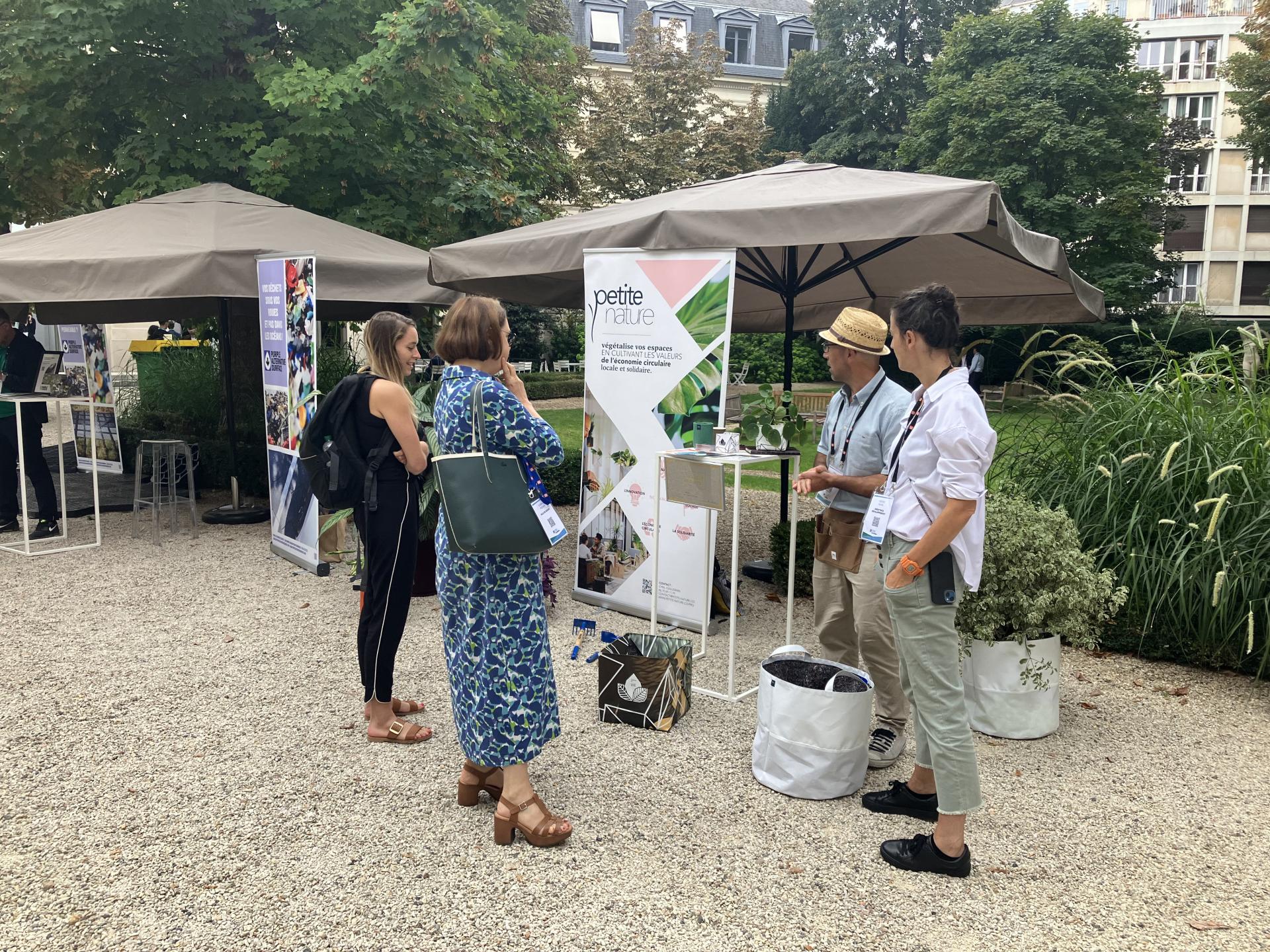
Quartiers Métropolitains d'Innovation : a first edition in 4 municipalities of Greater Paris
With the QMI programme, whose first edition was introduced in November 2022, the ambition of the Greater Paris Metropolis is to become a fertile ground for experimentation at the forefront of the challenges facing its municipalities.
Avec le programme QMI dont la première édition a été lancée en novembre 2022, la Métropole du Grand Paris a pour ambition de devenir un territoire fertile à l’accueil d’expérimentations à l’avant-garde des défis auxquels font face ses communes. La première promotion s'est clôturée le 14 février 2025, les 4 communes ayant désormais rejoint le dispositif Alumni du programme QMI.
The programme
In March 2023, 4 municipalities in the metropolitan area have been selected to host innovative structures from France and abroad :
- Aulnay-sous-Bois
- Meudon
- Sceaux
- Noisy-le-Grand
6 to 8 experiments per municipality will be deployed, monitored and analysed for 18 months of testing under real conditions until December 2024.
Les communes lauréates
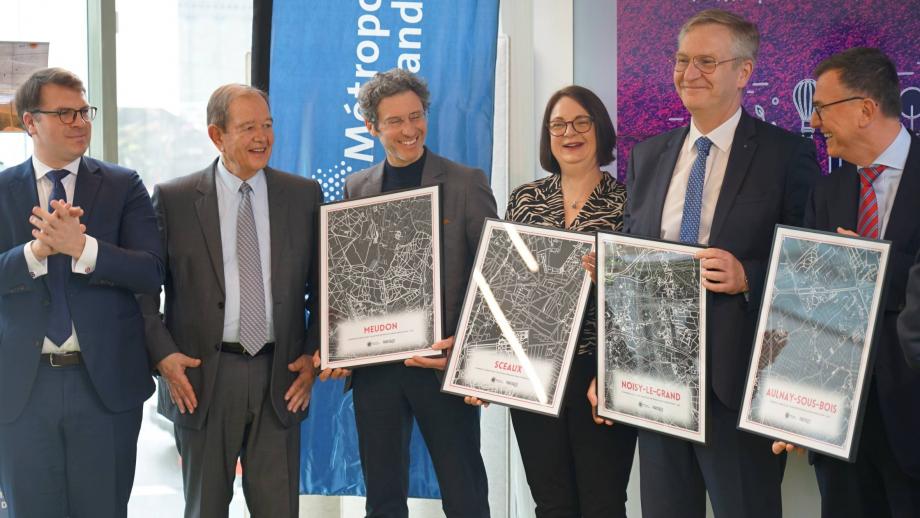
Aulnay-sous-Bois
Aulnay-sous-Bois is a municipality of 86,000 inhabitants in the Seine-Saint-Denis (93) department.
- The context
Aulnay-sous-Bois is keen to become a breeding ground for innovation in the metropolitan area and has already hosted a number of experimental projects (AI4CITIES, European ReGreen project). Divided between a more suburban south and a north classified as an urban regeneration zone, the town has to deal with a real diversity of urban issues. - The innovation district - Centre-Gare
Characterised by its "village spirit", Centre-Gare is a dynamic part of Aulnay-sous-Bois, with a strong commercial centre. Located to the north of the SNCF station, this mixed neighbourhood nevertheless has a major urban divide with the station and the railway tracks. The solutions tested could therefore focus on commercial and cultural development and programming, traffic calming or strengthening links between residents and shopkeepers. - Key issues
Espaces publics, nature en ville, attractivité commerciale, animation locale, mobilités, gestion des déchets.
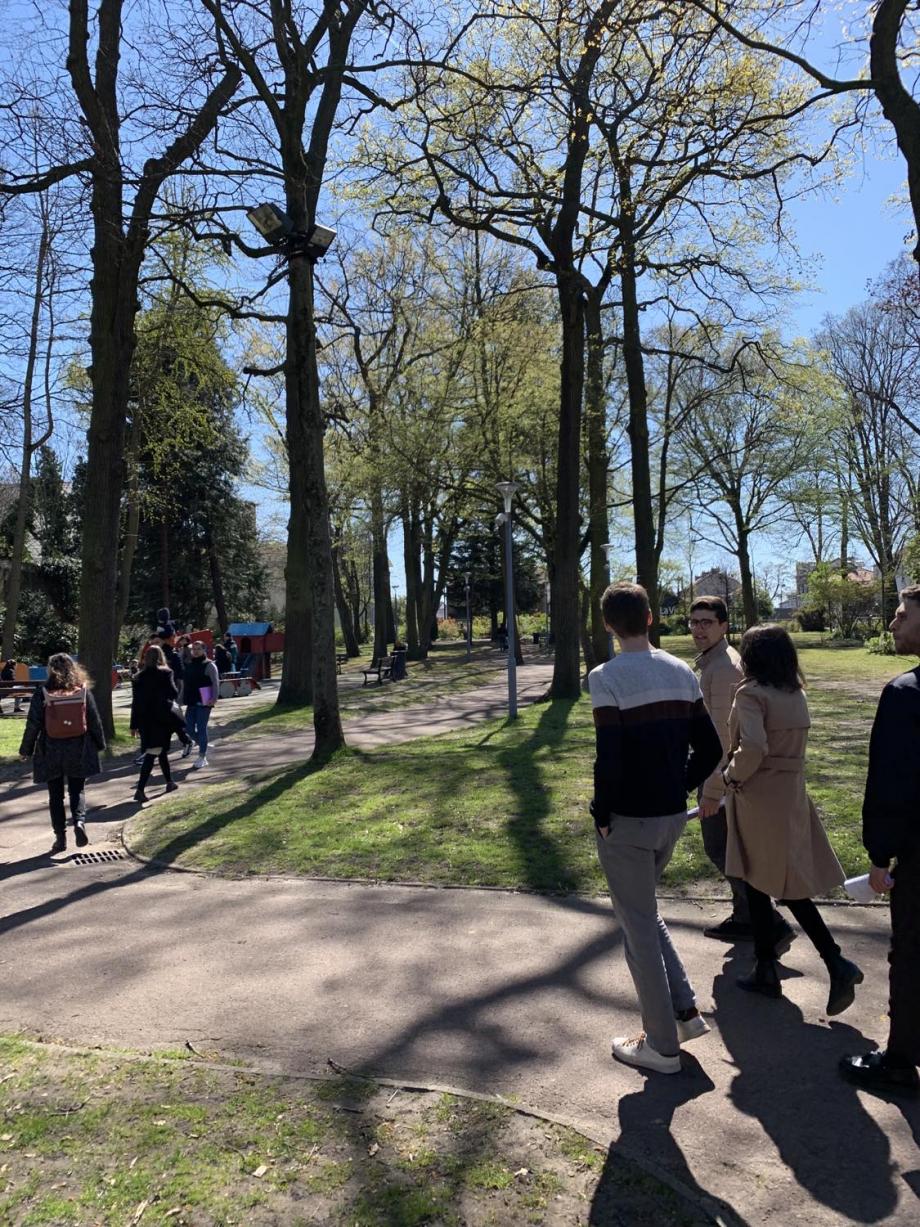
Meudon
Meudon is a municipality of 45,328 inhabitants in the Hauts-de-Seine department (92).
- The context
Meudon is a unique area for experimentation and innovation, where urban density coexists with green spaces. The town has already taken part in several ambitious programmes, including AI4Cities. With QMI, the town hopes to further anchor the key issues linked to the ecological transition in its public policies. - The innovation district - Meudon-la-Forêt
A densely populated district, dominated by large housing estates, with pockets of shops in strong competition with the nearby shopping centre. An eco-neighbourhood has been created as part of a major urban renewal project, demonstrating a local commitment to adapting to climate change. Experimenters will be able to test solutions for the energy transition of buildings, the fight against land artificialisation, commercial revitalisation and improved traffic flows. - Key issues
Energy, commercial attractiveness, waste management, flows, mobility and urban logistics.
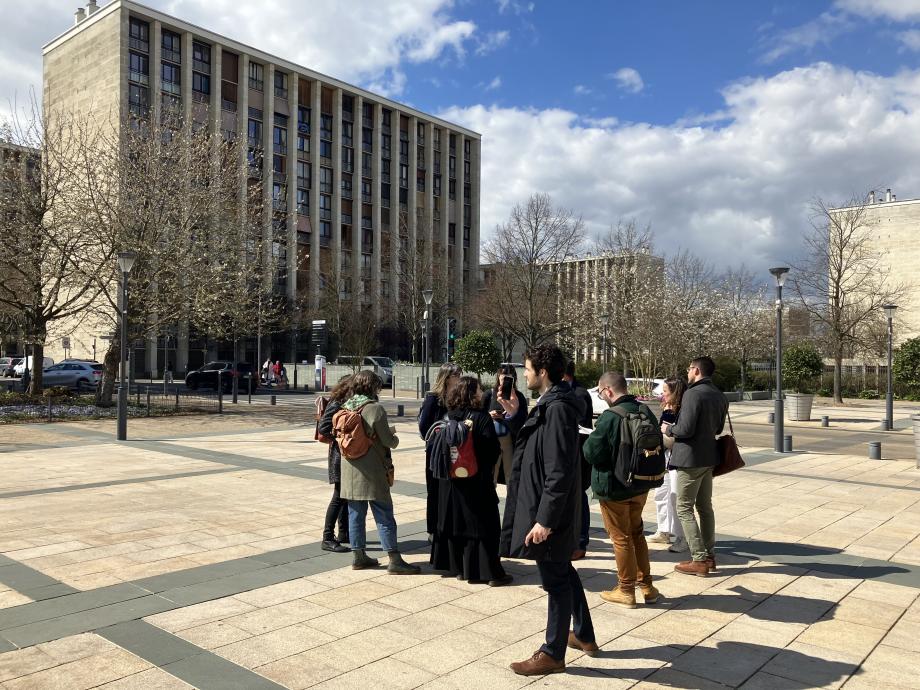
Noisy-le-Grand
Noisy-le-Grand is a municipality of 68,930 inhabitants in the Seine-Saint-Denis (93) department.
- The context
By applying for the first edition of the Quartiers d'Innovation Métropolitains programme, Noisy-le-Grand underlined the town's genuine desire to anchor innovation at the heart of its territory. Whether it's slab-based urban development, business parks undergoing restructuring or large-scale housing estates, experimenters will be able to test their solutions in a wide variety of urban contexts. - The innovation district - Le Mont d'Est
A multifunctional, dense, relatively lively and attractive area, the Mont d'Est presents specific challenges linked to the characteristics of ageing and very mineral slab-based urban planning, as well as a lack of links with the rest of the city. Innovative solutions are expected to address issues such as adaptation to climate change, functional mix, fluidity and legibility of travel, logistics, waste recovery and reuse, and the consolidation of social links. - Key issues
Ecological transition, energy transition, urban renewal, commercial appeal, local activities, public spaces, circular economy, flows, mobility and logistics.
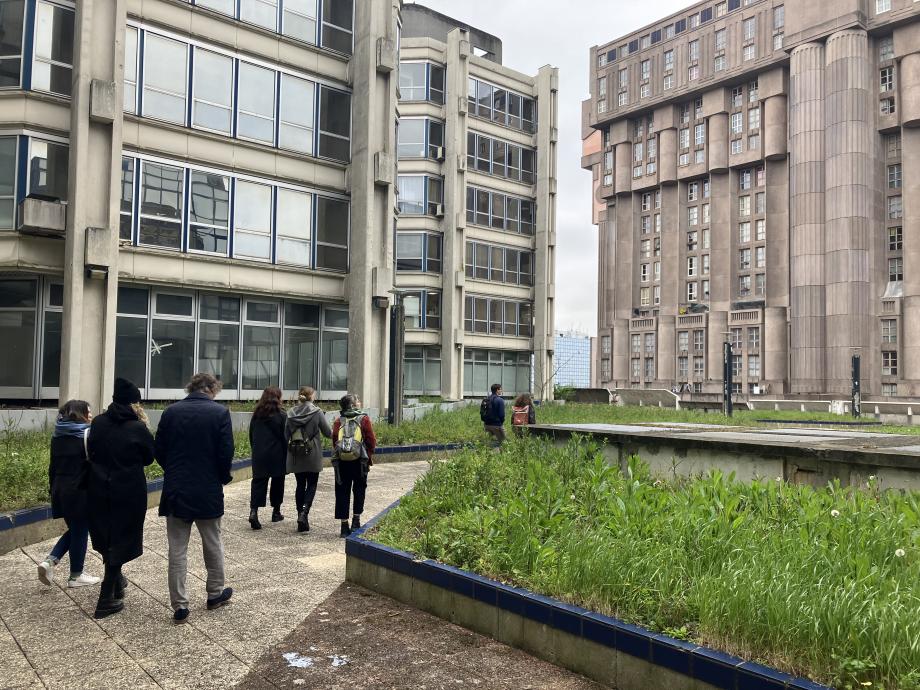
Sceaux
Sceaux is a commune of 20,374 inhabitants in the Hauts-de-Seine department (92).
- The context
With a global vision of innovation as an essential lever for local public action, the town of Sceaux wanted to join the Quartiers Métropolitains d'Innovation programme in order to continue the initial initiatives to promote innovation and experimentation in its area. - The innovation district - Les Blagis
Located at the crossroads of 4 towns (Sceaux, Fontenay-aux-Roses, Bagneux and Bourg-la-Reine), the Les Blagis district is a predominantly residential and mixed-use sensitive urban area. It is separated from the rest of the town by the RER lines, creating a clear urban divide. The town is looking to revitalise Les Blagis as part of the citizens' participation initiative to be carried out in 2021 with local stakeholders. At Les Blagis, the experimenters will be asked to propose solutions designed to improve the living environment, cleanliness and accessibility of the district, as well as its commercial appeal. Solutions for adapting to climate change and reducing urban heat islands will also be welcome! - Key issues
Propreté, accessibilité, attractivité commerciale, transition écologique et ilôts de chaleur, économie circulaire, mobilités.
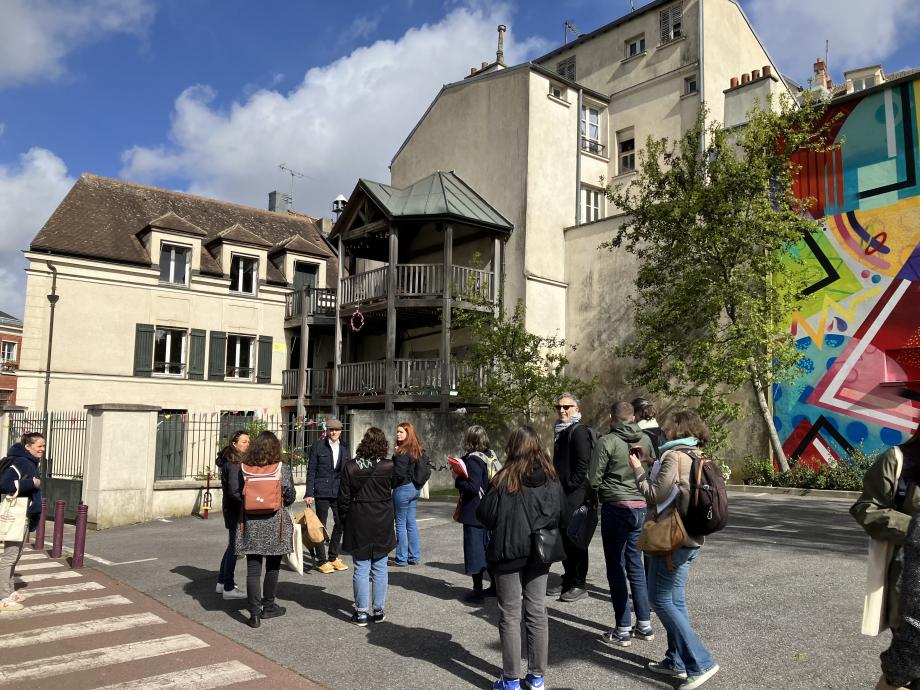
Where are we now ?
Latest news from the programme
It's been more than a year since we began working with local authorities and our partners - Paris&Co, Banque des Territoires, Choose Paris Région and Institut Paris Région.
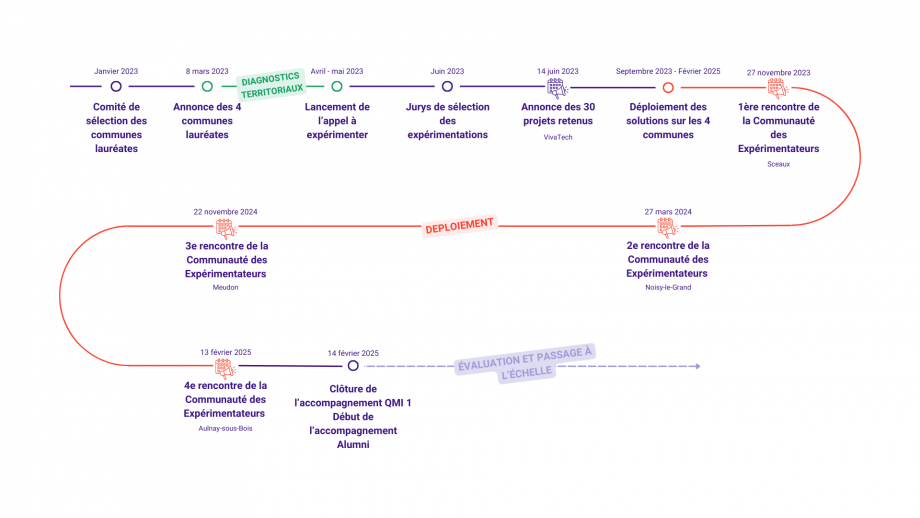
Quelques chiffres clés
- 4 évènements majeurs dédiés à l’innovation proposés par la Métropole du Grand Paris parmi lesquels VivaTech, Innopolis, Smart City Expo World, Congress et Cities Impact Summit
- 2 journées de formation permettant la prise en main des savoirs clés du programme (communication, ingénierie d’expérimentation, sélection des projets, marketing territorial, leviers de mobilisation, diagnostic territorial, commande publique, évaluation)
- +290 personnes mobilisées pour les rencontres de la Communauté des Expérimentateurs
- 100% des communes déclarent être montées en compétences sur la manière de collaborer avec des startups
- 70% de taux de déploiement moyen sur les quatre communes
- 80% des porteurs de projet recommandent le programme
- 100% des communes QMI1 veulent continuer à expérimenter
A number of major initiatives have been carried out, reflecting the expertise of each of the partners:
- With the Institut Paris Région : organisation of "sensitive walks" in the future innovation districts with those who use them on a daily basis - residents, associations, public agents and local players.
- With Paris&Co :
- 2 days of training for local authority project managers during two days of sharing and exchanging best practice.
- 2 meetings of the Experimenters' Community in Sceaux and Noisy-le-Grand, key events to share best practice and feedback on the Metropolitan Innovation Districts.
Finally, thanks to the investment of our partners Choose Paris Région and the Banque des Territoires, the call for experimentation launched by the Greater Paris Metropolis and Paris&Co has had an unprecedented impact, within France and beyond! The local authorities and their projects also benefited from high visibility at key events in the innovation ecosystem, which the Greater Paris region takes part in every year : Vivatech, Impact Cities Summit, Innopolis Expo.
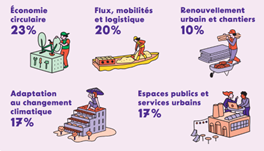
Evaluer l’impact des expérimentations : nos résultats
Afin de tirer pleinement parti des expérimentations menées dans les Quartiers Métropolitains d’Innovation, trois livrets d’évaluation ont été produits suite à l’issue de la première édition. Leur objectif ? Partager les bonnes pratiques des parties prenantes du programme (villes, porteurs de solutions, partenaires), capitaliser sur les apprentissages réalisés et préparer le changement d’échelle des solutions testées.
Chacun des livrets s’adresse à un public spécifique et répond à des objectifs complémentaire.
Livret 1 - Villes
À destination des communes participantes, ce livret revient sur chaque quartier d’innovation, les bonnes pratiques à avoir en tête pour mettre en œuvre des expérimentations ainsi que les grands enseignements des agents et élus ayant pris part au programme. Il met en lumière :
- Les facteurs de réussite pour un "quartier d’innovation”
- Les impacts du programme sur l’organisation interne des collectivités
- Les leviers activables pour pérenniser les solutions
Livret 2 – Porteurs de projets
Ce livret s’adresse aux startups, associations et entreprises ayant expérimenté leurs solutions. Il analyse :
- Les bénéfices du programme pour leur développement
- Les freins rencontrés (juridiques, financiers, opérationnels)
- Les conditions favorables à un passage à l’échelle
Livret 3 – Partenaires
Destiné aux acteurs institutionnels et techniques (Banque des Territoires, Institut Paris Région, Paris&Co, etc.), ce livret met en perspective :
- Le rôle des partenaires dans l’accompagnement des projets
- Les apports méthodologiques du programme
- Les pistes pour renforcer l’écosystème métropolitain de l’innovation
